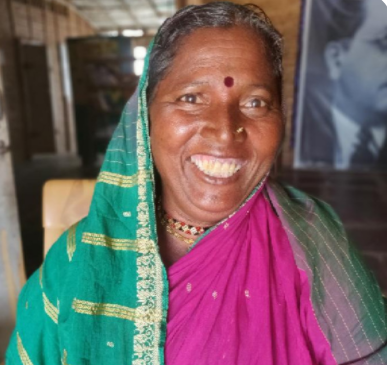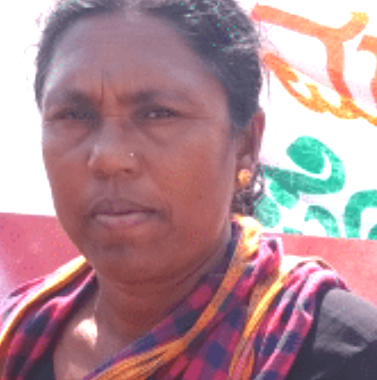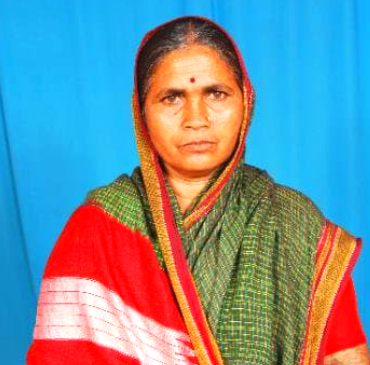Pending Wages
JMS documented cases of pending wages in 10 villages, held protests in front-of the land-lords forcing them to talk to women. In some villages, paments were pending over two years. All the pending wages were recovered to Dalit women.
Drought-relief
JMS filed several petitions for drought-relief work for people. In Pothnal and Muddanagudi, for example, more than 500 people got work for over 7 days. However, JMS also had to fight against the engineers who quantified the work through their measurements and discriminated against women and paid less wages. A fierce fight against a junior engineer who refused to pay equal wages to women was finally resolved through the intervention of the local legislator (MLA) after which the people let the junior engineer go.
Protest against harvesing machines Successively:
for three years, 2002, 2003 and 2004, JMS took delegations of women leaders to ban harvesting machines in agriculture. One harvester completed one hectare of harvesting in an hour thus displacing 50 women’s work for two days. The contract-rates per acre had come down to Rs.500 per acre of harvesting, effectively reducing number of harveting days to less than a month. In 2004, in the peak of the third year of successive drought, a massive rally of over 2000 women was taken in Raichur district headquarter and a sit-in dharna in front of Deputy Commissioner’s office. It resulted in a government order banning the machines in Raichur district. With this massive victory, the contract rates per acre jumped to Rs. 2500/- and people all over the district got work for over three months. The vigilance against the entry of machines and mobilising people and police to trace the machines is a legend in JMS’ history.
Land Development of Marginal Dalit Farmers
In collaboration with Hyderabad-Karnataka Development Board, JMS piloted the land developemnt of 28 Dalit-Madiga households in Devipura village (Manvi Taluka). Though the one to one-and-a-half acre land was allotted to them in 1970s, it was lying fallow as it was not surveyed, bunds were not marked and needed heavy investment to make it cultivable. The land was cleared of thorny busehs, surveyed, bunds were formed, water-harvestig ponds were made and organic maure was supplied to make them cultivable. The Community took full responsibility for this. In the successive years of drought, these lands produced grains, fodder for animals and water for the grazing animals in the agricultural ponds.








